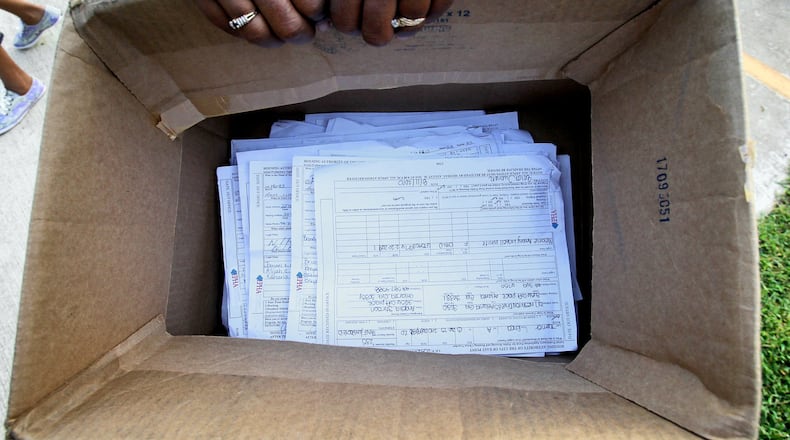The Atlanta City Council on Monday approved a measure they say will prohibit discrimination against applicants who use federal vouchers for housing.
The council approved the ordinance by a vote of 13-2, to ban landlords from rejecting vouchers as payment for affordable housing units, a measure introduced by Councilmen Antonio Brown and Amir R. Farokhi. Councilmen Howard Shook and J.P. Matzigkeit, who both represent Buckhead-area districts, cast the two opposing votes.
The effort to root out voucher discrimination comes as the nation struggles with a severe lack of affordable housing. In Georgia, there is a shortage of about 204,000 rental homes for families whose income falls at or below the poverty line, according to the National Low Income Housing Coalition. Landlord discrimination against vouchers is widespread and has exacerbated the affordable housing crisis, advocates say.
Atlanta would be the first local government in Georgia to a pass a law prohibiting discrimination against housing applicants based on housing vouchers, according to the Poverty & Race Research Action Council, a Washington, D.C., nonprofit group. At least 80 cities, counties and states have approved such measures, the Poverty & Race group said, including Chicago, Memphis and New York City, and the states California, Oklahoma and Utah. No Southeastern state has an anti-discrimination law for housing vouchers.
Supporters say the law will help low-income Atlanta residents obtain affordable housing.
“It’s unfortunate that there has been a stigma placed on people who have vouchers,” said Bambie Hayes-Brown, CEO of Georgia Advancing Communities Together, an association for nonprofit housing groups. “The vast majority of people who have vouchers are working families, the disabled and senior citizens.”
The city’s law department suggested an amendment to keep the ordinance from taking effect until the state approved a similar law. After an hour-long discussion in executive session with city attorneys, council members rejected that recommendation.
A spokesman for Mayor Keisha Lance Bottoms had no immediate comment about her position on the passage of the legislation.
Resident Diane Dougherty said during the Monday hearing at City Hall that the measure “will have tremendous impact on what the city will look like 10 years from now. Many in private markets discriminate against voucher holders because of their racial and class bias.”
But members of the Atlanta Apartment Association, which includes real estate landlords and investors, don't condone discriminatory practices, President Jim Fowler said in a Monday letter to the city council.
Instead, landlords sometimes reject vouchers because of flaws in the federal Housing Choice Voucher program, formerly known as Section 8, Fowler said. Any landlord’s decision to reject an applicant is for “legitimate business reasons based on the red tape and burdensome bureaucracy that exist in the program,” he said.
For example, landlords have had problems with delays in property inspections conducted through the voucher program and restrictions on their ability to renew or cancel leases, Fowler said.
Those problems make it more expensive for apartment firms to operate in their communities, the National Multifamily Housing Council, a trade association for building owners, said in a statement on their website.
Many low-income applicants say they have run into racial discrimination and concerns by landlords that they won’t get their money, which is a misguided opinion by landlords, Hayes-Brown said.
“With a regular market-rate tenant, you’re taking a chance that they may or may not pay their rent,” she said. “With a voucher, there is some guarantee [for the landlord] that you will get paid.”
Families who use housing vouchers pay no more than 30% of their income toward the cost of an affordable-housing unit. The rest is covered by the federal government.
Keep Reading
The Latest
Featured




